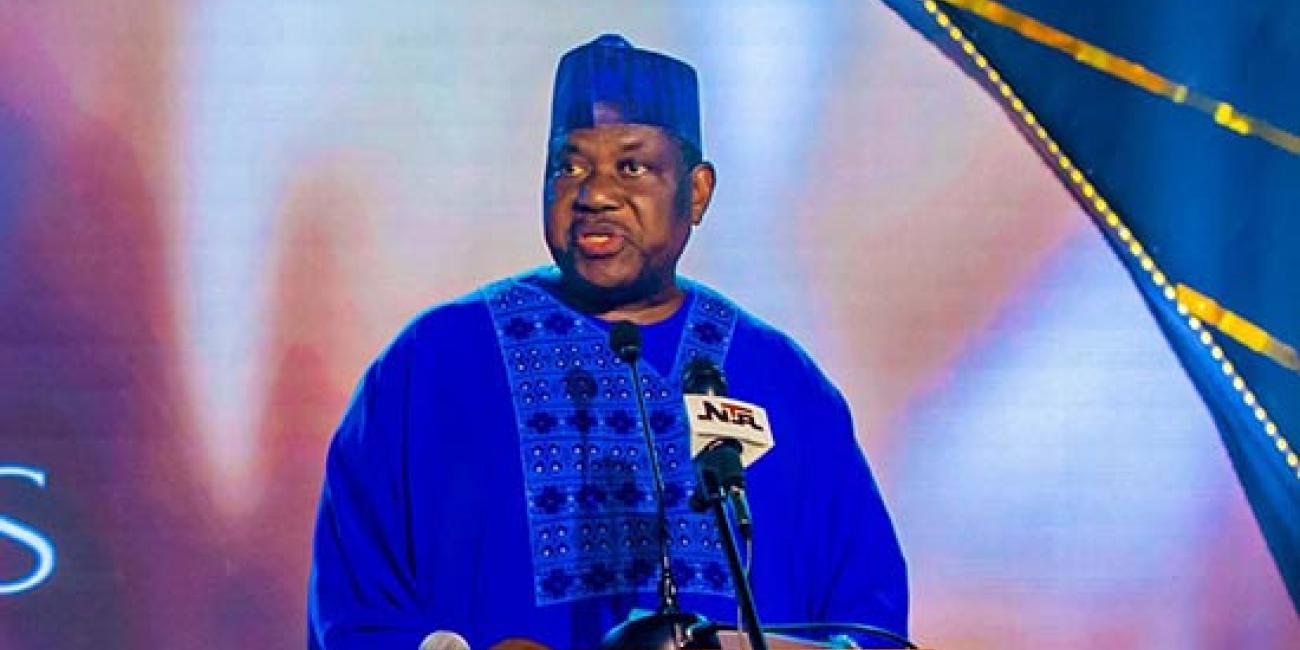
Akume said Trump’s posture had become a rallying signal for groups seeking legitimacy, allowing violent actors to latch onto external rhetoric to intensify internal conflicts.
The Secretary to the Government of the Federation, George Akume, has warned that recent public statements by United States President Donald Trump have emboldened violent networks across Nigeria, giving extremist groups a fresh international narrative to justify attacks on vulnerable communities.
Akume, in a statement issued Wednesday, linked the spike in propaganda by terror cells, bandit groups and extremist actors to what he described as the “inadvertent” impact of Trump’s comments on Nigeria’s security landscape.
His remarks follow Trump’s October 31 declaration where the American President designated Nigeria as a “country of particular concern” over alleged Christian genocide, and further warned that he might deploy U.S. troops to Nigeria if such killings continued.
Trump also revealed that he had instructed America’s military establishment, saying he had directed the Department of War to prepare for “possible action” should the violence persist.
The U.S. President equally threatened to suspend Washington’s assistance if the Tinubu administration failed to halt the alleged persecution.
Akume said Trump’s posture had become a rallying signal for groups seeking legitimacy, allowing violent actors to latch onto external rhetoric to intensify internal conflicts.
According to Akume, insurgency networks had previously been significantly weakened and reduced to isolated banditry before the statements.
He said some groups were now attempting to leverage those remarks to gain visibility.
The statement partly read, “Recent pronouncements from the United States have inadvertently emboldened opportunistic violent groups seeking to exploit international narratives and make bold statements by attacking soft targets.
“Before these statements, insurgency structures had been significantly degraded and reduced to isolated banditry. This resurgence underscores the vital need for collaboration — not public labelling — between Nigeria and the United States.”
Akume reaffirmed the government’s position that Nigeria does not require foreign troops, noting that the Nigerian Armed Forces have reclaimed territories and degraded Boko Haram and ISWAP structures.
He said the country instead needs targeted support from partners, especially in intelligence, technology and equipment.
“The Nigerian Armed Forces are highly capable, experienced and professional. They have reclaimed vast territories, degraded Boko Haram/ISWAP leadership structures, and conducted successful multi-theatre operations.
“Nigeria does not require foreign troops. What is needed is targeted support from partners, especially the United States, in the areas of intelligence cooperation, technology and military equipment support for advanced engagement against the insurgents,” Akume said.
Akume also said the government rejected claims describing the conflict as a “Christian genocide,” stating that verified evidence shows insurgents and criminal groups have attacked both churches and mosques, killing Muslims and Christians.
He stressed that Nigeria remains a secular state and that government appointments reflect the country’s diversity.
He said, “Nigeria rejects any characterisation of the conflict as a genocide against Christians or any group. Verified evidence shows that insurgents and criminal networks attack both churches and mosques, killing Muslims and Christians alike. The Government remains committed to protecting all citizens and strengthening cooperation with international partners — especially the United States — to dismantle extremist and criminal networks.
“Nigeria is a secular state as guaranteed by various provisions of the Constitution of the Federal Republic of Nigeria 1999 as amended. No state religion is adopted as a national religion and no citizen of Nigeria is above the Nigerian constitution.
“The appointment made by the present administration reflects the diversities of our nation and both Christians and Muslims and members of the Federal Executive Council holding key positions in equal proportion, including the Nigerian security council, the body that deals with all security challenges in Nigeria.”

